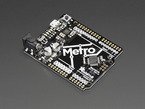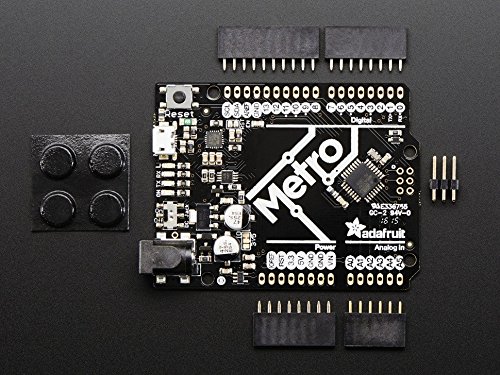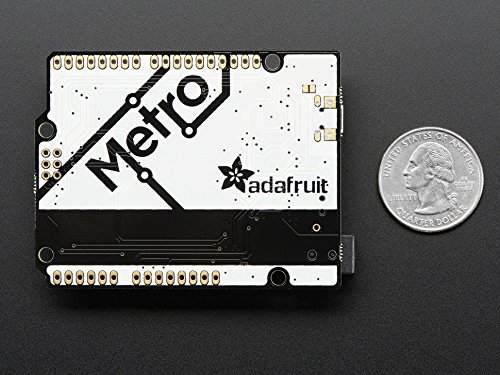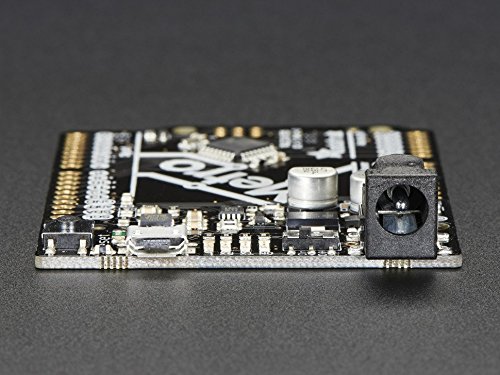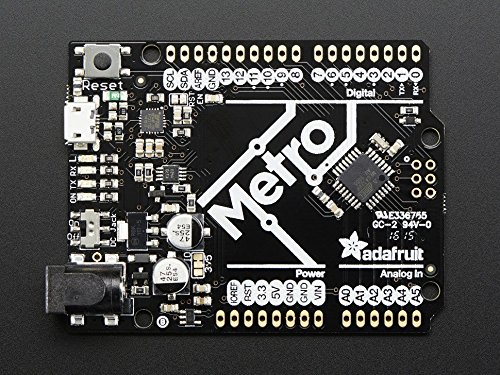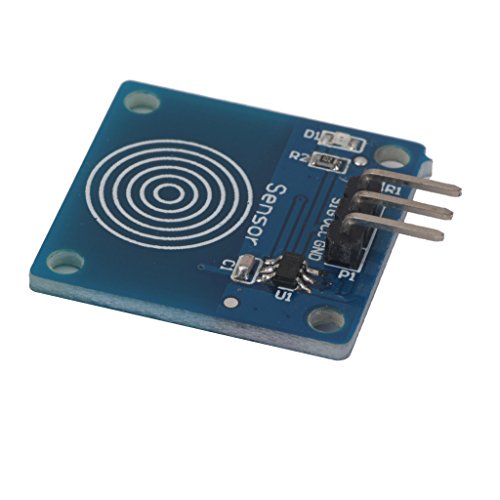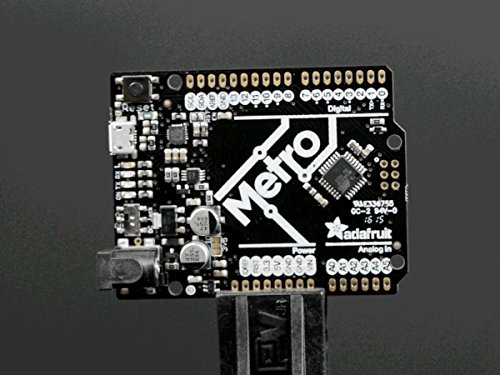Adafruit METRO 328 without Headers – ATmega328
17,01 €
Zuletzt aktualisiert am: 20. Februar 2018 17:28 We sure love the ATmega328 here at Adafruit, and we use them a lot for our own projects. The processor has plenty of GPIO, Analog inputs, hardware UART SPI and I2C, timers and PWM galore - just enough for most simple projects. When we need to go small, we use a Pro Trinket 3V or 5V, but when size isn't as much of a concern, and a USB-serial converter is required, we reach for an Adafruit METRO. METRO is the culmination of years of playing with AVRs: we wanted to make a development board that is easy to use and is hacker friendly. ATmega328 brains - This popular chip has 32KB of flash (1/2 K is reserved for the bootloader), 2KB of RAM, clocked at 16MHz Power the METRO with 7-9V polarity protected DC or the micro USB connector to any 5V USB source. The 2.1mm DC jack has an on/off switch next to it so you can turn off your setup easily. The METRO will automagically switch between USB and DC. METRO has 20 GPIO pins, 6 of which are Analog in as well, and 2 of which are reserved for the USB-serial converter. There's also 6 PWMs available on 3 timers (1 x 16-bit, 2 x 8-bit). There's a hardware SPI port, hardware I2C port and hardware UART to USB. GPIO Logic level is 5V but by cutting and soldering closed a jumper, you can easily convert it to 3.3V logic USB to Serial converter, there's a hardware USB to Serial converter that can be used by any computer to listen/send data to the METRO, and can also be used to launch and update code via the bootloader Four indicator LEDs, on the front edge of the PCB, for easy debugging. One green power LED, two RX/TX LEDs for the UART, and a red LED connected to pin PB5 Easy reprogramming, comes pre-loaded with the Optiboot bootloader, which is supported by avrdude and only uses 512 bytes.


